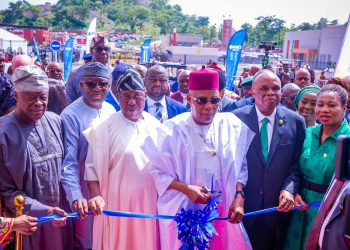Way back in 1998, Automobile mechanics in Rwandan garages were mostly of Ugandan origin understandably due historical bond between the two countries and the labour deficiency caused by the genocide against Tutsis.
They continued putting up their own garages in the country. Given the ineptitude for Rwandan mechanics that time, it resulted in employing their relatives hence increasing their number at the local market.
François Sebushumba, is a Rwandan mechanic who has been in the profession for 10 years with SOFAMU Garage in Gatsata, a suburb commonly known to be home for most Ugandan mechanics. He has worked with Ugandan mechanics all along.
“They came here [after 1994], they succeeded because there was a small number of Rwandans able to do [these jobs],” Sebushumba says. “They brought changes in the profession, they would spend less time to deliver than what Rwandan car owners were used to and they were more skillful than we were.”
“ Some clients are still hooked with them as they think they will serve them better. But we copied many things from them and we are now working like them,” Sebushumba explains.
One Ronald, a Ugandan mechanic, (has since acquired a Rwandan name as Bazibumbira) works says he come to Rwanda to look for money. This, he says, is already one incentive for someone to work hard. Secondly, he says, “we are not lazy” like some Rwandan mechanics here. “They kind of lack passion for the job.”
He says attracting clients does not depend on a mechanic’s nationality, but rather on the quality of services rendered; excellent automobile repairs, punctuality and affordability of the services.
Yet, Ronald thinks there are Rwandan mechanics who are more skilled than many Ugandan mechanics, but there is “one missing thing: Passion.” He says, “they need to be passionate, more hardworking and to like the kind of work they do.”
“ If you do some something without passion, you end up failing because you do not like it,” Ronald says.

Most garages in Kigali city have had one or more Ugandan mechanics if not, the mechanics at a certain garage will fail to fix a fault and recommend the car owner to a garage where they know of a Ugandan who knows how to fix such faults.
Aphrodis Tuyishime, a Rwandan businessman, prefers Ugandan mechanics because they deliver quickly and they are reliable. “When you come here, it does not take you long time waiting for your car to be repaired, saving time.”
But that is not all. There is a trait commonly attributed to Ugandan mechanics. Many car owners don’t trust their cars with Ugandan mechanics. “Yes, they are good. They will fix the car, and very well by the way, but you will most of the times find one spare part missing,” says James Karangwa.
“I don’t mean all of them behave like that, but the fear is legitimate, because it has happened to me more than twice…I would find out at a later stage that one of my parts in the car had actually been removed or replaced by an older one.”
Government intervention
At some point, the matter of Rwandan garages being largely occupied by foreigners became a national discussion. “I guess it was not being bigoted, because we are in the East African Community, and we must allow free movement of labour, but it was a serious issue and it still is, that such kind of jobs are largely occupied by foreigners,” says Patrice Bucyana, a student of political economy.
The government decided to initiate a policy that encourages young Rwandans to learn such skills and get employment. The ‘National Employment Program (NEP) facilitates the creation of sufficient jobs by equipping the workforce with vital skills and attitude for increased productivity.
Dozens of technical vocational education and training schools have been set up over the past few years. Students learn variety of skills including mechanics, electricity, computer science, carpentry, masonry and many others.
“We will get there,” says …in the next ten years, “We will be competitive, we will be like or more than these Ugandans you see here.”
Karangwa likes the attitude. “If that is how they are thinking, then we are on the right path. Competition makes someone better today than he was yesterday.”

VIDEO: >>> HERE


















